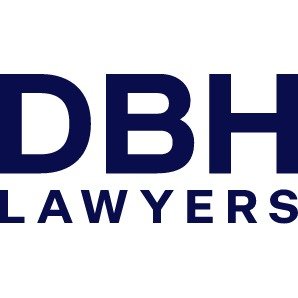Best Aviation Lawyers in Salisbury
Share your needs with us, get contacted by law firms.
Free. Takes 2 min.
List of the best lawyers in Salisbury, Australia
About Aviation Law in Salisbury, Australia
Salisbury, a vibrant region in South Australia, is home to a specific set of aviation activities due to its proximity to several key aviation hubs, including the RAAF Base Edinburgh and Parafield Airport. Aviation law here encompasses various regulations derived from both Australian federal statutes and local legislation impacting pilots, aircraft operators, and businesses. This legal field covers areas such as aircraft maintenance, air safety, airspace management, and environmental considerations. For those involved in aviation - whether commercially or recreationally - understanding these laws is crucial to operating within the legal framework and ensuring safety and compliance.
Why You May Need a Lawyer
Individuals and businesses involved in aviation might require legal assistance for several reasons. Common scenarios include resolving disputes over aircraft purchase or sale, dealing with regulatory compliance issues, responding to accidents or incidents, and navigating the legalities of airspace usage. Additionally, aviation lawyers can provide guidance on insurance claims, help in drafting contracts, and represent clients in negotiations or litigation involving airport operations and commercial aviation services.
Local Laws Overview
Aviation in Salisbury, Australia, is regulated by a combination of federal and local laws. Key components include rules established by the Civil Aviation Safety Authority (CASA) which oversee aircraft safety and operator certifications. Locally, laws might pertain to noise restrictions, environmental impacts, and land use around airports. It's essential to understand Salisbury's specific zoning laws and restrictions that affect flight operations, such as curfews or no-fly zones, especially given the proximity to military installations and suburban areas.
Frequently Asked Questions
What is the role of the Civil Aviation Safety Authority (CASA) in Salisbury?
CASA regulates aviation safety standards across Australia, including Salisbury, overseeing pilot licensing, airworthiness of aircraft, and enforcement of safety regulations.
Do I need special permission to fly a drone in Salisbury?
Yes, operating a drone in Salisbury requires adherence to CASA regulations, which include restrictions on altitude, proximity to airports, and privacy considerations.
What are the noise regulations for aircraft operating in Salisbury?
Noise regulations are determined by both federal laws and local council requirements, often including restrictions on flight times or paths to minimize impact on residential areas.
How are aircraft accidents investigated in Salisbury?
The Australian Transport Safety Bureau (ATSB) is responsible for investigating aviation accidents and incidents, working alongside local authorities as required.
What legal documents are crucial for buying or selling an aircraft?
Key documents include a sales contract, aircraft registration forms, maintenance logs, and insurance documentation to ensure a smooth transfer of ownership.
Can recreational pilots fly over military areas in Salisbury?
Recreational pilots must navigate carefully around restricted airspace, especially around RAAF Base Edinburgh, which requires specific clearance to avoid legal penalties.
How can safety violations be reported at local airports?
Safety violations can be reported directly to CASA, which has established procedures for investigating and addressing such concerns to maintain air safety.
Are there special considerations for flight schools operating in Salisbury?
Flight schools must comply with CASA regulations, including having licensed instructors, maintaining aircraft safety standards, and ensuring all training activities fall within authorized airspace.
What should I do if I'm involved in an aviation-related legal dispute?
Consulting with an attorney who specializes in aviation law is advisable to navigate the complexities of the dispute and protect legal interests.
How does airspace classification affect aviation activities in Salisbury?
Salisbury is affected by various airspace classes that dictate rules on visibility, flight separation, and communication with air traffic control, impacting both commercial and recreational flights.
Additional Resources
For further assistance and information on aviation law, you may contact the Civil Aviation Safety Authority (CASA), the Australian Transport Safety Bureau (ATSB), or the local Salisbury City Council. Engaging with aviation industry bodies, such as the Aircraft Owners and Pilots Association of Australia, can also provide useful guidance and resources.
Next Steps
If you require legal assistance in aviation, the first step is to identify the specific nature of your legal issue. Following this, consult with a lawyer who specializes in aviation law. Salisbury and its surrounding areas have several legal professionals with expertise in this domain. It's essential to prepare all relevant documentation and background information for your legal consultation to ensure the most effective advice and representation.
Lawzana helps you find the best lawyers and law firms in Salisbury through a curated and pre-screened list of qualified legal professionals. Our platform offers rankings and detailed profiles of attorneys and law firms, allowing you to compare based on practice areas, including Aviation, experience, and client feedback.
Each profile includes a description of the firm's areas of practice, client reviews, team members and partners, year of establishment, spoken languages, office locations, contact information, social media presence, and any published articles or resources. Most firms on our platform speak English and are experienced in both local and international legal matters.
Get a quote from top-rated law firms in Salisbury, Australia — quickly, securely, and without unnecessary hassle.
Disclaimer:
The information provided on this page is for general informational purposes only and does not constitute legal advice. While we strive to ensure the accuracy and relevance of the content, legal information may change over time, and interpretations of the law can vary. You should always consult with a qualified legal professional for advice specific to your situation.
We disclaim all liability for actions taken or not taken based on the content of this page. If you believe any information is incorrect or outdated, please contact us, and we will review and update it where appropriate.








